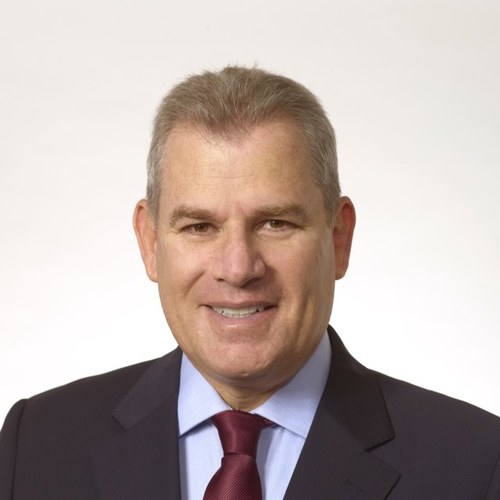By Joseph Fischer
Europe’s large Tourism giants TUI, Thomas Cook and Der Touristik are faced with a huge challenge. The challenge is nothing less than a tectonic shift in their consumers’ behavior. Millions of Germans, Brits, Russians, French and Italian holiday makers are looking for alternatives to their once favorite holidays destinations.
In a recent report titled “Egypt, Tunisia, Turkey: Too scary for tourist” on CNN, the reporter Alanna Petroff explained why millions of Europeans are seeking alternatives to once favorite and much loved mass tourism destinations.
In an article published on the Turkish daily newspaper the writer is quoting one of Turkey’s leading tourism heads: “Our country’s loss in tourism revenue may increase up to $15 billion over this year and the decline in tourist numbers by 30 percent compared to 2015,” said the head of the Tourism Investors Association (TYD), Murat Ersoy, in a press meeting on June 1.
When EU governments as well as the Russian Federation are issuing travel alerts to their citizens on a weekly basis, it is clear that many will take those warnings seriously.
Following the Tunisia massacre in 2015 in which thirty-eight people, 30 of whom were British, were killed and dozens more wounded, tourism groups need to take government warnings seriously.
It is clear nowadays, that it’s also the responsibility of the tour-operator to advise its clients about safety and security.
The challenges
Europe’s big travel groups are heavily invested in the mass-tourism infrastructure of Egypt, Tunisia and Turkey. These investments were made over a period of tweo to three decades and are worth hundreds of millions of Euros.
The major investments include:
- Fully owned or JV partnership in local tour-operation businesses which owns and operates fleets of buses and employs doing the season hundreds of representatives, guides, bus drivers.
- Ownership or JV partnership in holiday resorts and holiday clubs: Magic Life, Robinson, Riu, TUI Blue, TUI Family Life, Sentido, CTI Hotels, Primasol, Sunprime, Barut Hotels, TT Hotels, Sun wing family resorts, Aldiana Clubs and the list goes on…
- Long-term leases of club and resorts owned by others
- Partnership in local charter carriers
Clearly, if the trend of avoiding these countries continues also to the holiday season of 2017, the large European tourism groups will need to start ‘writing-off’ some of those investments in their books.
Alternate destinations
“One man’s loss is another man’s gain”. The highly conservative accumulative estimates numbers of tourists looking for alternatives to Egypt, Tunisia and Turkey are 10 million, whereas the more speculative estimates talk about 12-13 million travelers.
2016 will be remembered as Spain’s all new record year in tourism. The most conservative estimates talk about an increase of 5 million tourists over 2015 numbers. Some of Spain’s most popular beach holidays destinations – Tenerife and Mallorca – were almost sold out for the summer season as early as May.
In an article on the British daily newspaper published on May 25th, the title of the article was: “Spain and Portugal holidays in demand as UK tourists avoid Egypt and Tunisia over terror fears.” It was to read: “…Bookings to Spain, Portugal and Cyprus have increased by 26%, 29% and 18% respectively.”
The large radical Islamists terror attacks in Paris & Brussels as well as the recent terror attack in Orlando, are driving fear among holiday makers. Many wish to avoid holidays in Muslim countries and specifically in countries were terror attacks are aimed at western tourists. This gives Mediterranean non-Muslim countries a clear advantage, said group of countries including (but not limited to):
- Spain
- Italy
- France
- Greece
- Croatia
- Portugal
- Bulgaria
- Slovenia
- Cyprus
- Montenegro
- Malta
- Israel
Challenges ahead
Some of the above mentioned countries already have a substantial mass tourism infrastructure but the majority need to increase their current infrastructures in order to cope with the increased demand.
The demand is growing both on the incoming tourist segment also with local “home grown” tourism. Many of these countries citizens prefer to make their summer holidays in their own countries. Italians in Italy, Spaniards in Spain and French in France.
Taking into account that some of the countries listed above are in a deep and prolonged financial crisis, it is difficult to see how governments will invest in tourism infrastructures. It will be up to the private sector and international investments to take the major part of the investments.
We clearly talk about investments in the amount of billions of Euros in some of the larger destinations and hundreds of millions of Euros in the smaller destinations. Assuming that the money for those investments will be raised, projects take time to develop. We are talking about fast-trek developments of holiday resorts and hotels, the construction of which would take three to four years from today.
Change in holidays culture
Over the last decade, Turkey, Egypt and Tunisia introduces the “All-Inclusive” concept in many resorts. This concept has turned to become the preferred choice for the western holiday makers. Free F&B, free sport activates and in some cases in the “Ultra All-Inclusive” concepts also A la carte dining, free spa and wellness treatments.
These type of offerings could be made in countries where the labor costs factor is relatively low. Trying to copy and then apply those concepts on mass-tourism scale in EU countries, may prove to be expensive and will result in higher costs that will end up in the rates charged by the resorts. It may prove to be rather difficult to change holidaymakers’ holidays habits but I fear that this is needed.
Many younger tourists or what many refer to as the Millennial generations prefer staying in apartments or holiday homes. The Sharing-Economy is on the rise and it is getting stronger and stronger. In 2016 more than 30% of the world’s travelers are Millennials. Generation X, Y and Z.
Conclusion: Act now!
Assuming that the radical Islamic terrorism will not disappear in weeks or months from now, the large European tourism groups need to speed-up their lookouts and development activities in countries that are perceived by their customers as “safer for tourists”. Clearly in our day and age, no country, no destination is 100% safe.
We have seen terror hit Paris, London, New York, Orlando, Brussels and Moscow. Tour operators need to prepare their customers to pay more and maybe get less “Bang for the Buck” for their own sense of safety and security.
I do believe that people quickly adapt to changes, far more quickly than 20-30 years ago. It is up to the operators to explain the changes. It happened with airport security. Nowadays, travelers in most countries understand and accept serious security checks at airports.
Hopefully, for us all, this wave of radical Islamist Jihadi terrorism will end soon, but if not, we have to be ready to make a shift and act quick to the changes.

About the author:
Joseph Fischer a 30 years veteran of the global lodging & hospitality lodging industry is the CEO of Vision Hospitality & Travel services- International Lodging & Travel Solutions. Joseph is also a guest writer on several international Tourism & lodging publications and portals.

